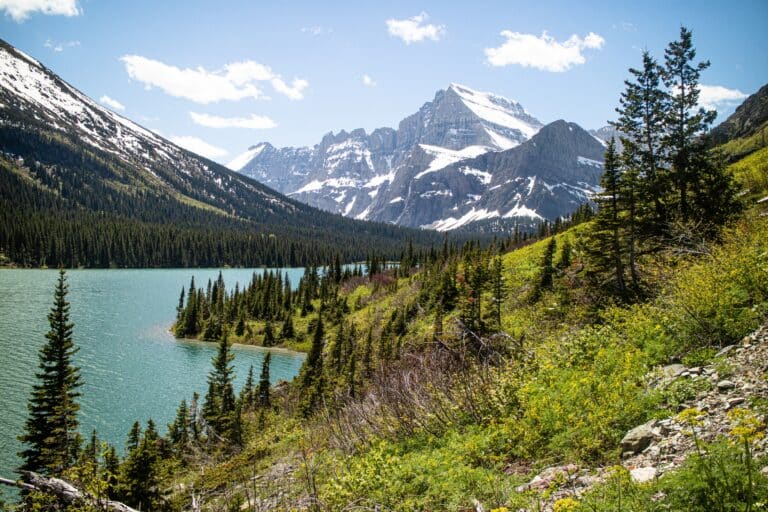Thinking of buying land in Kentucky? The Bluegrass State offers a remarkable variety of landscapes and property types, from the rolling hills of horse country to the rich farmland of the west and the wooded hollers of the east. With its affordable land prices and central location in the U.S., Kentucky attracts buyers from all walks of life. But before you make a land purchase, it’s important to understand the unique legal, environmental, and logistical considerations involved.
Some areas may offer fertile soil and wide-open fields ideal for agriculture, while others are better suited for weekend getaways. Add in factors like zoning laws and legal boundaries, and it’s clear how crucial it is to ask the right questions before making a decision.
This guide will help you think through those critical considerations. Whether you’re new to land buying or want to learn how to buy land in Kentucky specifically, we’re breaking down seven critical questions to ask to ensure you find the best plot possible.
1. Which Region of Kentucky Best Matches My Goals?
From the flat croplands in the west to the wooded hills in the east, each region of Kentucky offers distinct advantages based on your property goals:
- Western Kentucky – Western Kentucky offers prime land for farming and livestock. The region features fertile soil, flat terrain, and well-established agricultural infrastructure, making it ideal for row crops and cattle operations.
- Central Kentucky – Central Kentucky is the heart of equestrian country. Home to the iconic Bluegrass Region, this area features rolling pastures and strong equine culture. It’s one of the best places in the nation to own and operate a horse farm.
- Eastern Kentucky – Eastern Kentucky provides secluded, wooded acreage that’s perfect for recreation. With its mountainous terrain and dense forests, this region is ideal for buyers seeking a peaceful retreat or land for hunting and outdoor activities.
- South-central Kentucky – If you’re seeking a mix of affordability and opportunity, south-central Kentucky may strike a balance between rural charm and resale potential.
Any of these regions might be the best place to buy land in Kentucky, depending on your goals. By understanding what each area offers, you can narrow your search for land for sale in Kentucky and invest with confidence.
2. What Type of Land Is Common in Kentucky, and Which Type Do I Need?
Kentucky’s terrain varies dramatically across the state, and land type plays a big role in what your property can support:
- Pastureland – Found throughout the state but especially prevalent in central Kentucky, pastureland is ideal for livestock, horses, or future homesites.
- Wooded acreage – Wooded acreage is common in the eastern and southern parts of the state. Consider it if you’re interested in recreation, timber harvest, or privacy on your property.
- Flat cropland – Especially prominent in western Kentucky, flat cropland is suitable for row crops or investment agriculture.
- Hollows and hills – You’ll find these natural features mainly in eastern Kentucky. This area is beautiful and remote, but may complicate development or access.
If you’re buying hunting land in Kentucky, look for wooded parcels with good habitat, natural water sources, and signs of game activity. For farming and homesteading, prioritize soil quality and proximity to services.
3. What Do Zoning and Land Use Laws Allow in Kentucky?
Land use rules in Kentucky vary by county, and sometimes even by town. Before making an offer, find out exactly how the land is zoned and what that means for your plans.
Here’s a look at some key zoning and land use questions to ask:
- Is the parcel zoned agricultural, residential, or commercial?
- Are there restrictions on mobile homes, tiny homes, or manufactured housing?
- Can you subdivide the land or build multiple structures?
- Are there setbacks, building height limits, or minimum lot sizes?
In rural counties, zoning may be less restrictive, but don’t assume anything. For example, many Kentucky counties offer agricultural exemptions, but they may come with specific usage or acreage requirements. Make sure to verify zoning and land use details with the local planning or zoning department.
4. Does the Property I Want Have Legal Access and Rural Utilities?
Rural land in Kentucky isn’t always plug-and-play. In remote or mountainous areas, you may encounter issues with access and infrastructure. Here’s what you’ll want to confirm before purchasing:
- Deeded legal access – Does the parcel connect to a public road, or is it accessed via a shared easement? Without deeded access, you could run into major legal or financing roadblocks.
- Utilities – Many rural parcels are off-grid. This means you may need to install a septic system, drill a well, or use alternative energy. Check the availability of electric power, internet, and cell service, as well as public water or wells.
- Driveway or road condition – Even if access is legal, is the road actually navigable year-round? Some properties are only reachable via rough gravel or dirt roads that may be impassable in winter or after heavy rain.
If the land is part of a “holler” (a narrow valley common in eastern Kentucky), access and infrastructure may be even more limited, so it’s wise to visit in person before you commit.
5. Are There Mineral Rights or Easements That Could Affect Ownership?
Kentucky’s land history includes coal mining, natural gas drilling, and timber harvesting, especially in the eastern part of the state. This means that surface rights and subsurface (mineral) rights to a property may not always align.
Before closing, ask:
- Does the seller own full mineral rights, or were they sold off decades ago?
- Are there active or expired leases for coal, oil, gas, or timber?
- Are there easements that allow others to cross or use the property?
For example, a utility company may have a perpetual easement to run lines across your land. A third party might retain the right to mine coal from beneath your property, even if they don’t own the surface.
These situations can limit how you use or develop the land—you should always review them with a real estate attorney.
6. Is the Land Survey Accurate and Up to Date?
Many Kentucky land parcels, especially those in rural areas, are described using “metes and bounds,” or older legal descriptions that refer to landmarks like trees, creeks, or rock piles. While historically common, these types of descriptions can create confusion over time.
Natural features shift, trees fall, and man-made markers deteriorate, making it difficult to know exactly where one property ends and another begins. Before finalizing a purchase, it’s crucial to:
- Order a new survey from a licensed professional, especially if the property hasn’t been surveyed in recent years or if the seller doesn’t have documentation.
- Verify boundary lines in person, walking the land with the surveyor if possible, to identify any visible encroachments, shared fences, or disputed areas.
- Ensure the surveyed acreage matches both the deed and property listing, as discrepancies can affect property value and future development plans.
In areas with old homesteads or passed-down family farms, boundaries can be murky. An accurate, up-to-date survey gives you peace of mind and legal protection, helping to avoid future disputes and safeguard your investment.
7. What Should I Know About Buying Hunting Land in Kentucky?
Kentucky is a top destination for whitetail deer, turkey, and small game hunting. But not all land is equal when it comes to recreation.
If you’re buying hunting land in Kentucky, ask:
- Is the parcel near wildlife management areas (WMAs) or state forests?
- Are there existing food plots, water sources, or tree stands?
- Has the property been actively hunted or managed for wildfire?
- What are the neighboring land uses: residential, agricultural, or commercial?
Keep in mind that even if the land is labeled as “recreational,” you’ll still need to check access, easements, and zoning. And if you plan to build a hunting cabin or install a septic system, utility access becomes a major consideration.
Before You Buy Land in Kentucky, Ask the Right Questions
Whether you’re planning on building a homestead, starting a small farm, or buying hunting land in Kentucky, it pays to do your homework upfront. Ask questions and visit the land in person. Talk to local officials. Order a survey.
To ensure the process goes as smoothly as possible, consult with professionals like a land-specialized broker or land planner who knows Kentucky’s unique terrain and regulations.
Find the Right Property with Land.com
Buying land in Kentucky offers incredible possibilities—but no matter your vision, it takes the right tools and guidance to bring it to life. That’s where Land.com comes in.
Land.com makes it easy to explore a wide range of land listings across Kentucky and beyond. Our powerful search tools help you filter by location, acreage, price, and property type so you can quickly find parcels that match your needs. Plus, with expert insights, up-to-date listings, and a network of land professionals ready to assist, you’ll be well equipped to make an informed decision and confidently purchase the parcel of your dreams.
Wherever your land-buying journey takes you, start with the platform built for buyers like you.
Sources:
Cornell Law School. Metes and Bounds. https://www.law.cornell.edu/wex/metes_and_bounds
MAJR Resources. Can surface rights and mineral rights be owned by different parties? https://majrresources.com/can-surface-rights-and-mineral-rights-be-owned-by-different-parties
South Western Kentucky Economic Development Council. https://southwesternky.com/top-industries/agriculture/
University of Kentucky. Kentucky’s Agricultural Districts Program.
VisitLex. 61 Reasons Lexington is the Horse Capital of the World. https://www.visitlex.com/guides/post/61-reasons-lexington-is-the-horse-capital-of-the-world/



